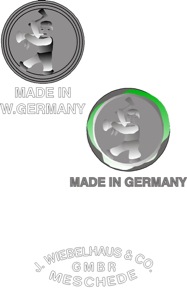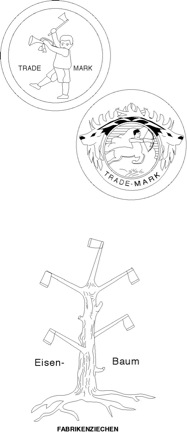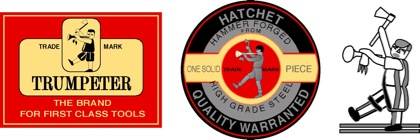






Comments, feedback and additional input are always welcome. Additional information or suggested corrections should be accompanied by verifiable sources or copies of same.
Please Contact:

Click on one of the other topics in the menu box at the top to go to a different department or article.
Johann Wiebelhaus & Co. manufactured axes, hatchets and other forged tools in an area called Sauerland in the town of Meschede, Germany. Meschede is located along the Ruhr River. The company was founded by Johann Wiebelhaus and four colleagues on September 13, 1911. The originating partners were Johann Wiebelhaus, Anton Frisse, Franz Frisse, Johann Eilinghoff and Josef Schulte. During all the years it was in operation the company operated as “Joh. Wiebelhaus & Co.”
Originally run by Johann Wiebelhaus, the leadership passed to his son Franz in 1928. Franz Wiebelhaus led the company from 1928 until 1945 when he died during an aerial attack. Leadership then passed to Franz’s oldest son, who was also named Franz. He led the business until his death in 1985. Shortly after that the company was completely closed down.
The original location was in a leased building in Meschede. The location was chosen so the company could take advantage of the available electrical energy and industrial (natural) gas. In 1945 the facilities were completely destroyed by bombs but operations were restored in 1947. The company continued in that location until 1986 when the business was completely closed down.
Judging from the English wording used on various labels, some of the axes and hatchets manufactured by Joh. Wiebelhaus & Co. were made for export.
MESCHEDE, GERMANY 1911-1986
By Tom Lamond ©

ACKNOWLEDGMENTS
Some information used in this article has been obtained from different sources including but not limited to:
Wiebelhaus, Wolfgang: son of Franz Wiebelhaus, grandson of Johann Wiebelhaus. Personal correspondence.
Jagel, Richard; Personal correspondence, translation assistance.
Label Books; from the archives of the Mann edge Tool Co.
Representation of an early company trademark that appeared on a trade card dated 1924. The translation of Eisen-Baum is "Iron Tree" and Fabrikenzeichen means "Factory Mark."
Representation of a stamping used on some axes. GMBH is an abbreviation for a corporate structure similar to a LLC in the US or LTD. in Canada and British countries.
Facsimile of a paper label as included in one of the Mann Edge Tool Co. label catalogs.

Vestiges of green paint within and around the upper marking suggest that some heads may have been painted green.
A stamping like this was applied beneath the round paper label on the same hatchets.

Trademarks in effect in the 1950s and later.

